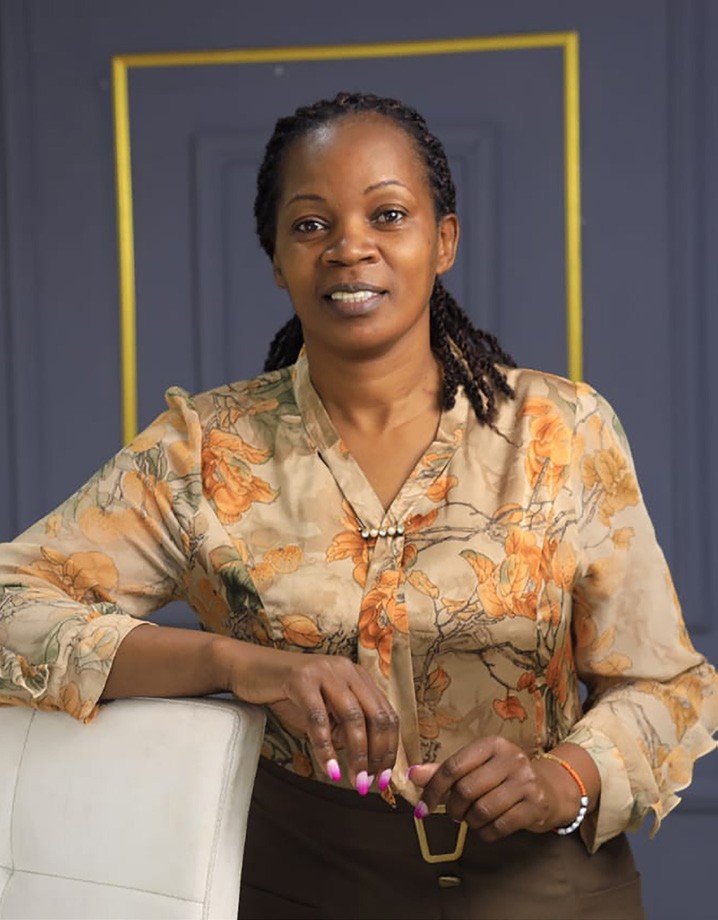Question#1 What was your company’s distinctive strategy for incorporating technology to meet UN Sustainable Development Goal?
At Freezone, we have been working on the development and deployment of energy-efficient refrigeration solutions. We have heavily invested in research and development to integrate cutting-edge technologies such as harnessing solar power and using R400 gas for cooling. Our goal as a refrigeration company is to work towards reducing postharvest losses not only at the farms but throughout the value chain, thus increasing income and productivity. We seek to facilitate a complete cold value chain, leaving no one behind, by providing innovative cooling solutions using clean energy in our operations and promoting their wider adoption, reducing energy consumption and greenhouse gas emissions in the refrigeration sector, which is a significant contributor to global warming. We strongly believe we can make a positive impact on the environment and help create a cleaner and more sustainable energy future. As we work on this, we are also facilitating efforts to minimize food waste through optimized temperature control, ensuring sustainable supply chains, and supporting the transition to a circular economy.
Question#2 What challenges did you face while working on your project/ initiative, and how did you overcome them?
One of the primary challenges was the lack of awareness and understanding among small-scale traders and farmers regarding the benefits and importance of refrigeration. Many viewed refrigeration systems as expensive and inaccessible to the rich. To overcome this, we conducted awareness campaigns and demonstrations to showcase the advantages of our solar-powered cold rooms and mini mobile fridges. We have been collaborating with local agricultural associations, businesses, government agencies, and other partners to reach out to the target market and provide training on the proper handling and utilization of refrigeration equipment. Additionally, we are working on developing flexible financing options such as the pay-as-you go model and customized solutions to make our products affordable and tailored to the specific needs of the users. By addressing these challenges through strategic partnerships, and innovative approaches, we have been able to overcome the initial barriers and successfully venture into the market, making a significant impact on reducing food waste and promoting food.
Question#3 How did you involve local communities and stakeholders in your work, and what was their response?
We actively engage local communities and stakeholders in our work, collaborating with farmers, traders, market associations, and business leaders. Through consultations and needs assessments, we align our initiatives with their requirements. We provide training and knowledge sharing sessions, empowering communities to utilize our solar powered refrigeration systems effectively. Partnering with local organizations, we create a support network and facilitate access to financing. The positive response highlights the value of addressing unique challenges with affordable and sustainable solutions. Involving communities fosters sustainability and reduces food wastage.
Question#4 Which organizational skills and assets can be harnessed to provide its goods/services without negative environmental and social impacts?
At Freezone, we recognize the need to align our organization’s skills and assets to provide products and services that have minimal environmental and social impacts. Several strategies have been working for us. These include leveraging the expertise of our team of engineers and designers in implementing sustainable design principles, prioritizing the use of solar-powered equipment in our solutions, and emphasizing efficient resource management throughout our operations. We prioritize hiring and empowering local talent, contributing to socioeconomic development, creating job opportunities, and promoting inclusivity within the industry. As a matter of culture, we actively engage with stakeholders, including local communities, government authorities, and industry partners. We strongly believe that through open communication and collaboration, we can ensure that our activities align with local needs, regulations, and social priorities. This has helped us mitigate potential negative impacts and foster positive relationships.
Question#5 What is the role of businesses, governments, and civil society in achieving the SDGs, and how can they work together?
I strongly believe that combining strengths, resources and efforts can drive innovation, scale impactful solutions, and help to achieve the SDGs comprehensively and sustainably, leading to a prosperous and equitable future for everyone. As businesses drive innovation, create economic opportunities, and implement sustainable practices, they can leverage resources, integrate the SDGs into strategies and adopt responsible production patterns. Governments hold the responsibility to provide policy frameworks, regulations, and incentives that will enable sustainable development, as well as engage in partnerships with both businesses and civil society. On the other hand, civil society’s role should be to advocate for the SDGs, raise awareness while holding stakeholders accountable, mobilize support and advocate for inclusive policies. Working together effectively, multi-stakeholder partnerships based on trust, shared goals, and mutual accountability are necessary. This can be achieved through collaboration in the form of joint initiatives, public-private partnerships, dialogue platforms, and knowledge sharing.
Question#6 What impact has your project had, and what are your future goals?
Our cold storage solutions and last mile cold chain approach minimize post-harvest losses, ensure food security, and reduce food wastage in Kenya. We provide affordable, reliable, and sustainable cooling solutions, preserving food from farms to consumers. Our MDUKA technologies empower local market traders, minimizing wastage. Looking ahead, we aim to expand our impact, providing complete cold chain solutions and promoting zero hunger. We innovate with sustainable technologies and seek partnerships and community engagement. Our vision is an inclusive future with safe and nutritious food and an environmentally friendly food supply chain.
Question#7 What advice do you have for individuals/organizations seeking to create positive change and contribute to the SDGs?
Every action, no matter how small, can make a difference. However, it is important to educate yourself about the SDGs. Identify the goals that align with your values and expertise and set clear and measurable objectives that contribute to those goals. Secondly, seek partnerships and collaborations with like-minded individuals and organizations to leverage collective knowledge and resources, maximizing your impact. Embrace innovation and sustainability in your operations, seek ways to integrate eco-friendly practices and responsible production patterns that align with the SDGs. Do not be afraid to raise awareness by sharing your initiatives and successes. By raising awareness and inspiring others, you can create a ripple effect of positive change.Remember, start small and scale up gradually. Celebrate milestones along the way and learn from challenges to continually improve your efforts. You are contributing to a more sustainable and inclusive world for future generations.
Question#8 How would receiving this SDG Award help you improve your impact and scale your project?
Receiving the SDG Award would be a significant honor, recognizing our commitment to reducing post-harvest losses and improving food security. It would validate our positive impact and provide visibility for our work. This recognition would open doors to valuable partnerships, collaborations, and funding opportunities, allowing us to scale our project and reach more women and small-scale traders. The Award would inspire our team and stakeholders, boosting morale and driving innovation. Overall, it would serve as a powerful endorsement, encouraging us to continue pushing boundaries and making a meaningful difference in our industry and community.






















